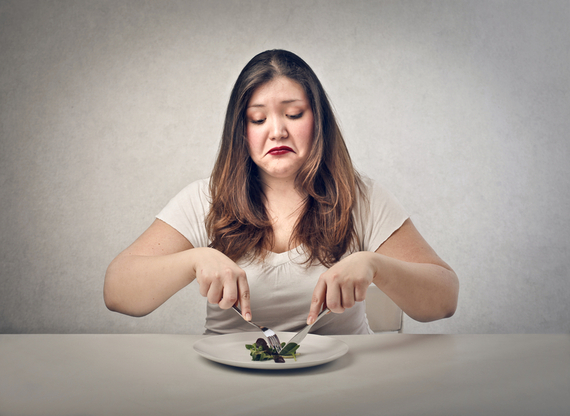
I’ve got some bad news. You’ve been duped.
In fact, for the better part of the last century we’ve all been lied to about what it means to eat a healthy diet.
Here’s the story:
In the 1960s and ’70s eight U.S. Senators had heart attacks and died while in office.
Seeing his colleagues drop dead around him alarmed the 54-year-old Senator George McGovern from South Dakota, so he decided to turn the nation’s attention toward the affects diet can have on health.
In the summer of 1976 Senator McGovern called a hearing on the Senate floor which lead to the creation of the first dietary guidelines in U.S. history.
These guidelines encouraged people to eat less fat, especially saturated fat, and eat more carbohydrates instead.
We can all agree that the Senator’s intentions were good, but the problem is that the science he used to support his arguments was lacking in both depth and accuracy.
While a landmark study at the time showed that were links between elevated cholesterol levels and heart disease, there was no evidence that saturated-fat consumption caused heart disease.
There was also no mention of the negative effects that refined carbohydrates and sugars have on LDL cholesterol levels (the bad kind of cholesterol), which we now know to be significant.
Still, the fat-free craze began.
Americans flocked toward highly-processed and carbohydrate-heavy foods while they shunned the fatty foods that had sustained past generations for centuries.
And the result?
Instead of losing weight, reducing heart disease, and becoming an all-together healthier nation, America spiraled into the health crises we see today, with obesity and diabetes rates reaching record-breaking highs.
How did this happen? It’s actually not that surprising in hindsight.
If you’ve ever been on a low-fat diet you know how miserable it can make you feel. A grapefruit and plain oatmeal for breakfast, salad without dressing for lunch, and skinless chicken with a sprinkling of steamed veggies for dinner is not what most people would call delicious or satisfying.
When food isn’t satisfying your body triggers you to eat more.
You end up craving carbohydrates (which your body turns into fat,) in a futile attempt to fill the energy deficit left by low-fat foods.
To make matters worse, manufacturers know that low-fat foods don’t tend to taste very good, so they pack their products with sugars and other less-than-desirable chemicals to trick you into coming back for more.
So what’s a health-conscious person to do?
Base your diet on real food, focus on eating the most nutrient-dense ingredients, and don’t be afraid of eating fat.
Real foods are unprocessed and only contain ingredients you can pronounce.
Dishes that are built on a foundation of vegetables, with some organic, wild, and/or pasture-raised meats sprinkled in, and whole grains like quinoa, barley, and wild rice should make up the majority of your diet.
And make sure you get enough fat!
Top dishes off with a few splashes of high-quality olive oil or olive-oil based dressing, eat avocados, and enhance meals with nuts and seeds for a powerful dose of healthy fats.
As for cooking? Feel free to use some pasture butter or ghee, rendered animal fats, coconut oil, and especially avocado oil for delicious stir-fried and baked dishes.
Fats help your body absorb vital nutrients like Vitamins A, D, E, and K, so not eating enough fats with your vegetables can actually reduce the positive effects many vegetables have on your body, making you a lot less healthy in the long run.
Moreover, a recent study showed that adding avocado to hamburgers can significantly reduce inflammation and even increase vascular health, suggesting that adding good fats to less-than-healthy foods can have the potential effect of reducing the overall negative impact.
And there are added bonuses:
Meals made with a healthy dose of fat tend to taste better, and eating fats will keep you feeling full and satisfied for longer so you’ll be less likely to fill up on carbohydrates, sugars, and other extra calories that aren’t as good for you.
Now a word of caution.
This doesn’t mean you should go out and eat half a jar of almond butter every day.
But you also shouldn’t be afraid of adding a moderate amount of good fat to every meal as long as you’re eating lots of vegetables too.
The next time you’re at the grocery store, fill your basket with vegetables and a variety of fatty additions.
You’ll be happier and healthier when you do!
Want more? Click here to get your free copy of the 10 Vital Steps to Create a Healthy & Vibrant Lifestyle.
